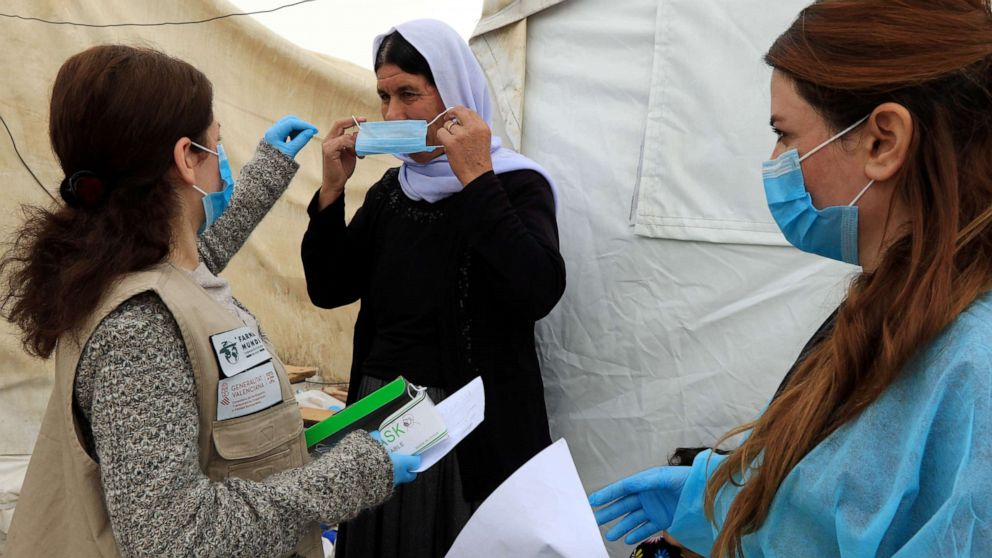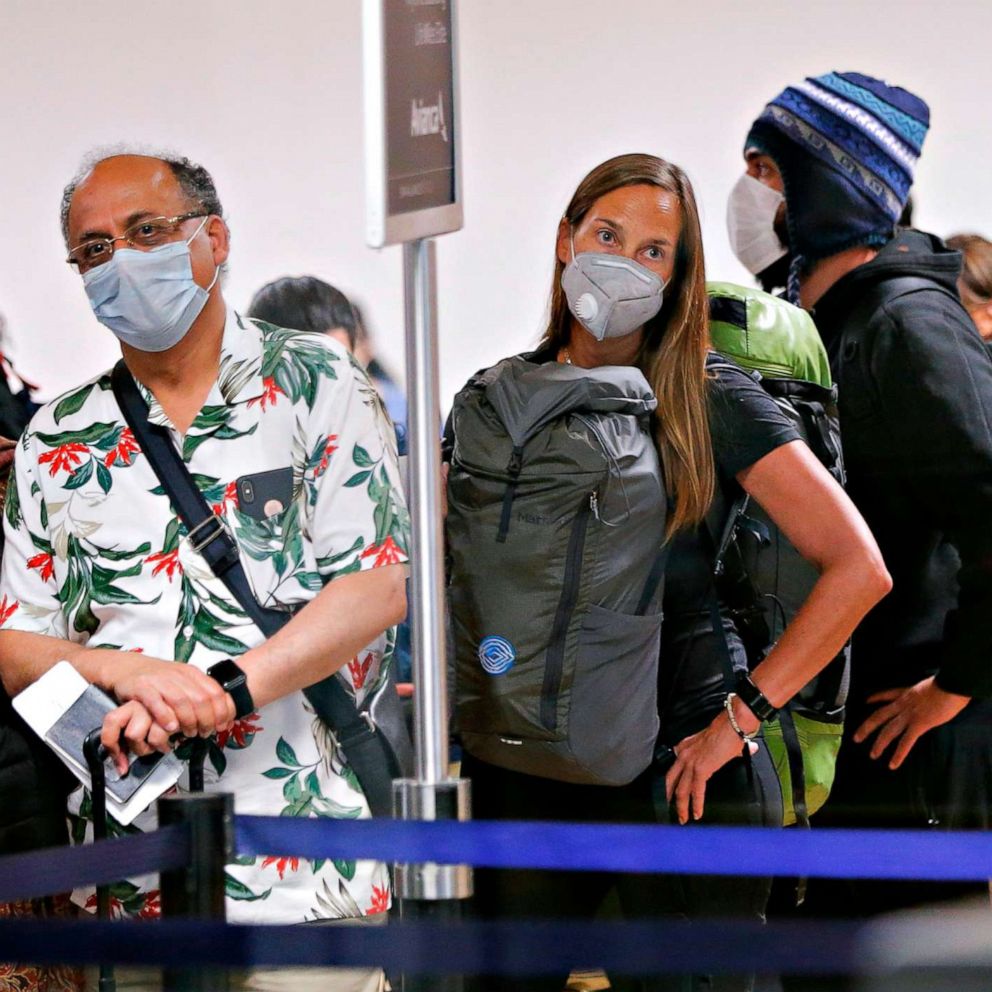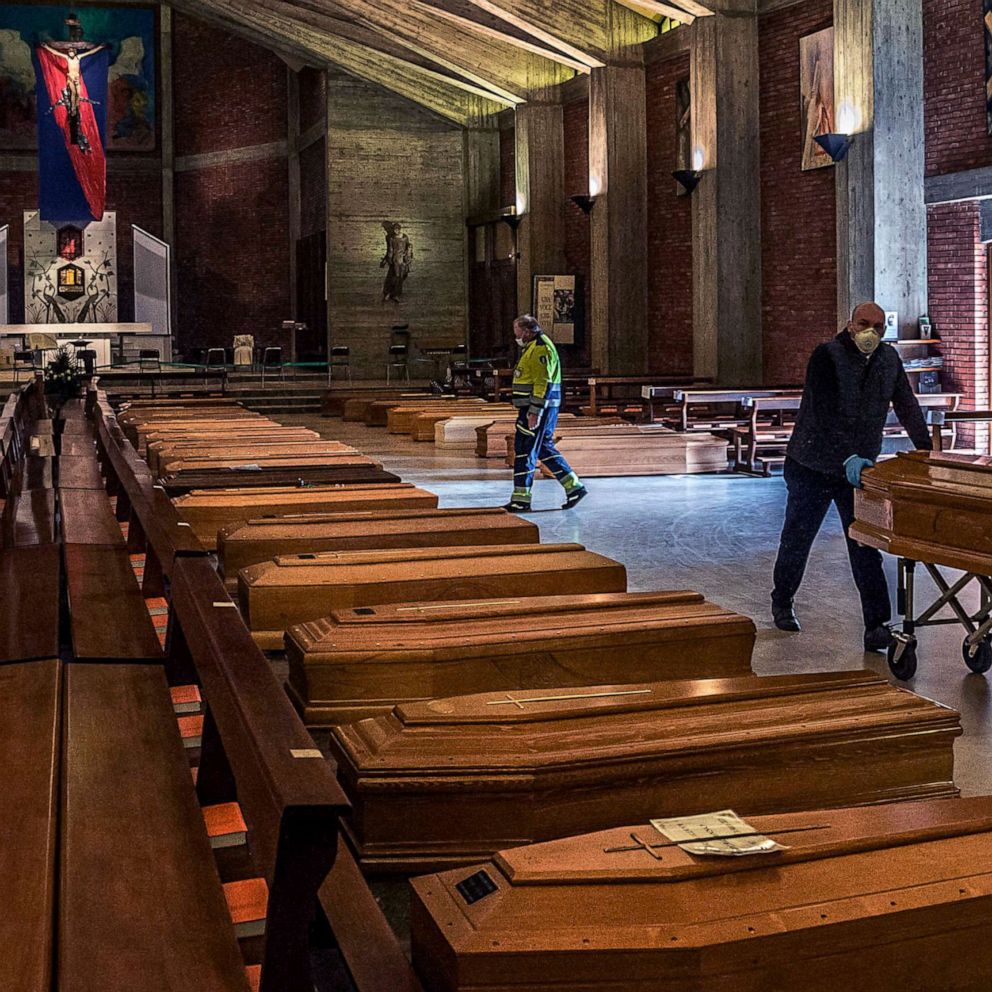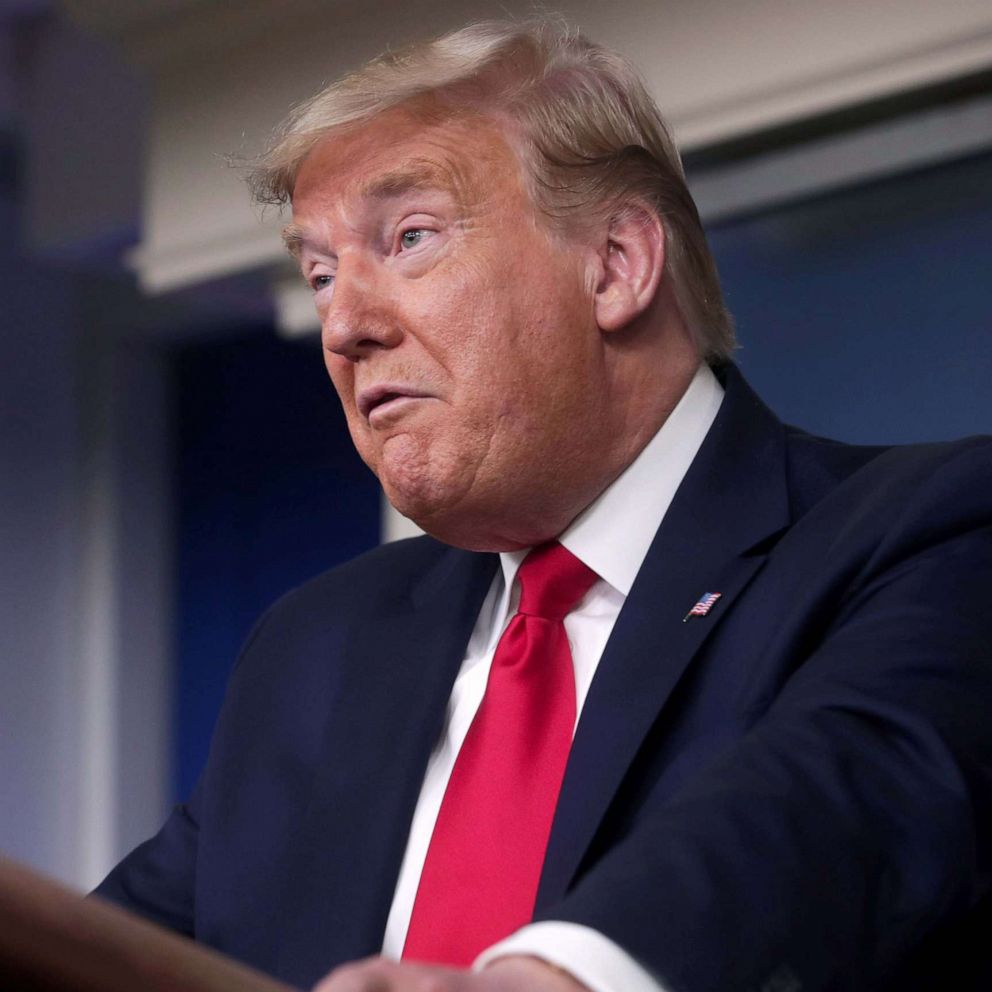Fears grow over coronavirus outbreak devastating refugees, civilians trapped by war
The novel coronavirus has swept through developed countries like China, Italy, South Korea, Spain and the United States, killing thousands and disrupting their economies, but the world has yet to see mass outbreaks among the most vulnerable populations.
These places include camps for refugees and internally displaced people in Iraq and Syria or Myanmar and Bangladesh, in active war zones like Yemen and in countries with crumbling health systems, like Venezuela.
Humanitarian experts and the United Nations are warning that day will come soon, posing a deadly threat to millions of people and demanding an urgent response from the international community -- but one that so far hasn't come together.
"This pandemic can only be won when countries and means and resources are put and pooled together to contain and to fight the spread of the of the virus," Robert Mardini, director-general designate of the International Committee of the Red Cross, told ABC News. "This is the only way forward."
Tune into ABC at 1 p.m. ET and ABC News Live at 4 p.m. ET every weekday for special coverage of the novel coronavirus with the full ABC News team, including the latest news, context and analysis.
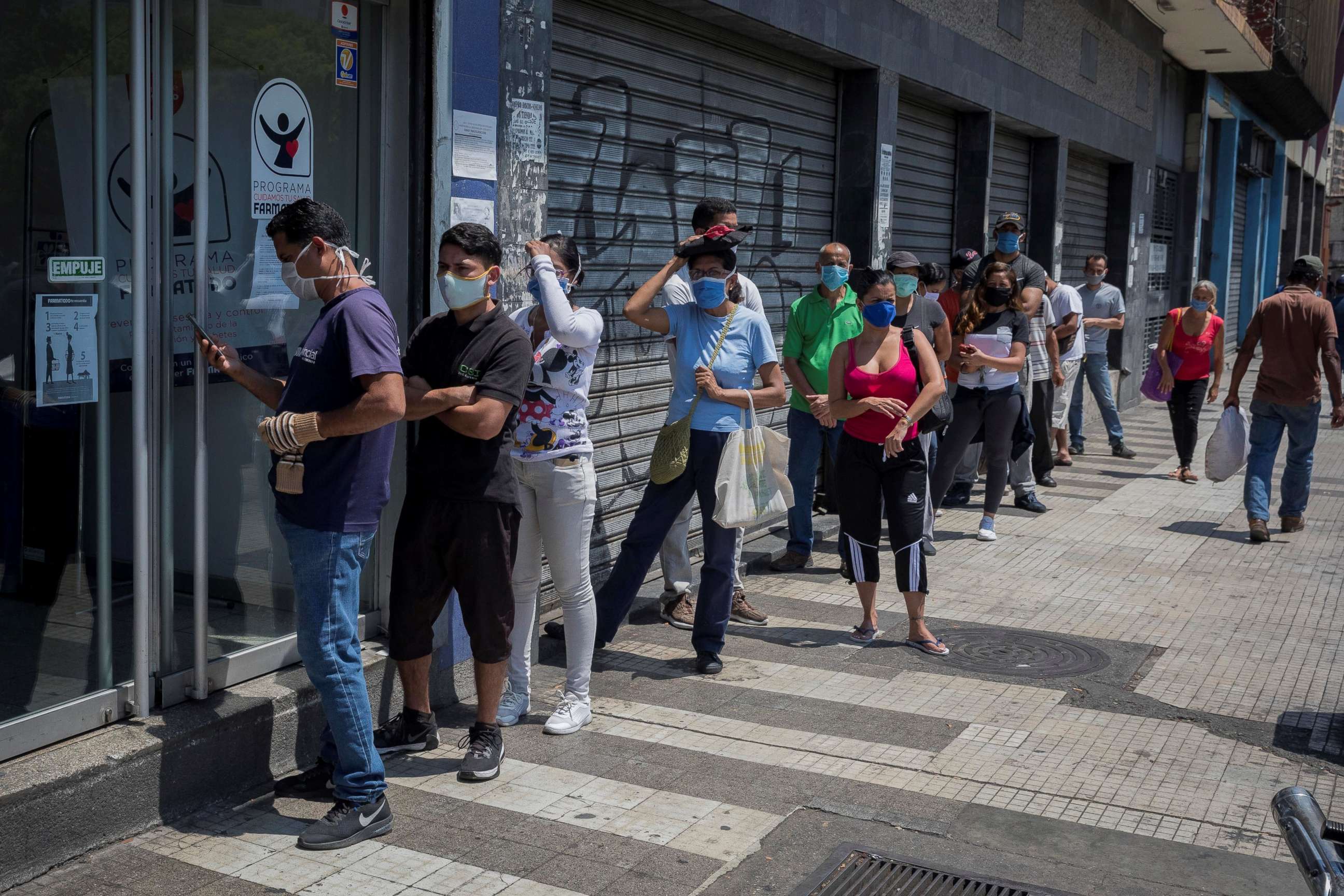
There are nearly 71 million displaced people around the world, including nearly 26 million refugees forced to flee their home country. Syrians in Jordan and Turkey, Rohingya in Bangladesh and Somalis in Kenya are among the approximately 2.6 million refugees who live in camps, according to U.N. data.
In those temporary shelters, the tactics used to prevent a COVID-19 outbreak like hand washing or social distancing are all but impossible, and health care systems -- already severely limited -- certainly don't include the sophisticated intensive care resources needed to combat respiratory infections brought on by the virus.
While Iraq has seen over 150 cases, largely from individuals crossing the border from Iran where there is a massive outbreak, there have been no reported cases in its camps for displaced people and refugees.
The greatest concern, however, is over Idlib province in northwest Syria, where some three million civilians are now cramped into an area that used to house 300,000, after strongman president Bashar al Assad's offensive, backed by Russian warplanes and Iranian-commanded militias.
Those civilians were displaced "under extremely violent conditions in a very short period of time who are now living in already deeply tenuous circumstances," according to Hardin Lang, a veteran of U.N. humanitarian missions.
Lang added that they are at an even higher risk because of the poor health conditions, incredible stress, lack of nutrition and high population density, which places like Wuhan, China, or New York City have shown makes contagion quicker.

"The lack of a health care system, much of which was destroyed by the Russian bombing campaign" means there's little ability to detect or prevent the spread," he said
Once cases start to pop up, isolation and hygiene will be "extremely difficult," Lang said, especially with the COVID-19's spread facilitated by food lines, families crammed in tents together and front-line health care workers' lack of personal protective equipment.
Even as conflict continues to displace hundreds of thousands of civilians, calls for a global ceasefire have so far been largely ignored.
All factions of the war in Yemen initially welcomed that call, with the U.N. special envoy for the conflict calling for "an urgent meeting to discuss how to translate their stated commitments to the Yemeni people into practice," but there were a series of attacks Friday. The Saudi-led coalition said Houthi rebels fired drones into the kingdom's territory.
In five years of war, much of the countries health care system has been destroyed, leading to deadly outbreaks of diseases rare in the developed world, such as cholera, with 1.3 million suspected cases of the disease to date, according to the World Health Organization -- a sign of how ghastly a COVID-19 outbreak would be in the country of nearly 29 million.
"In countries like Europe, the United States, China who enjoy a very sophisticated health system, when the number of confirmed cases of COVID-19 start to skyrocket, those very sophisticated health systems are totally overrun and overwhelmed," Mardini said. "So one can only imagine what will happen in places like Syria and Yemen who are running on 50 percent or even less of their medical and health capacity."
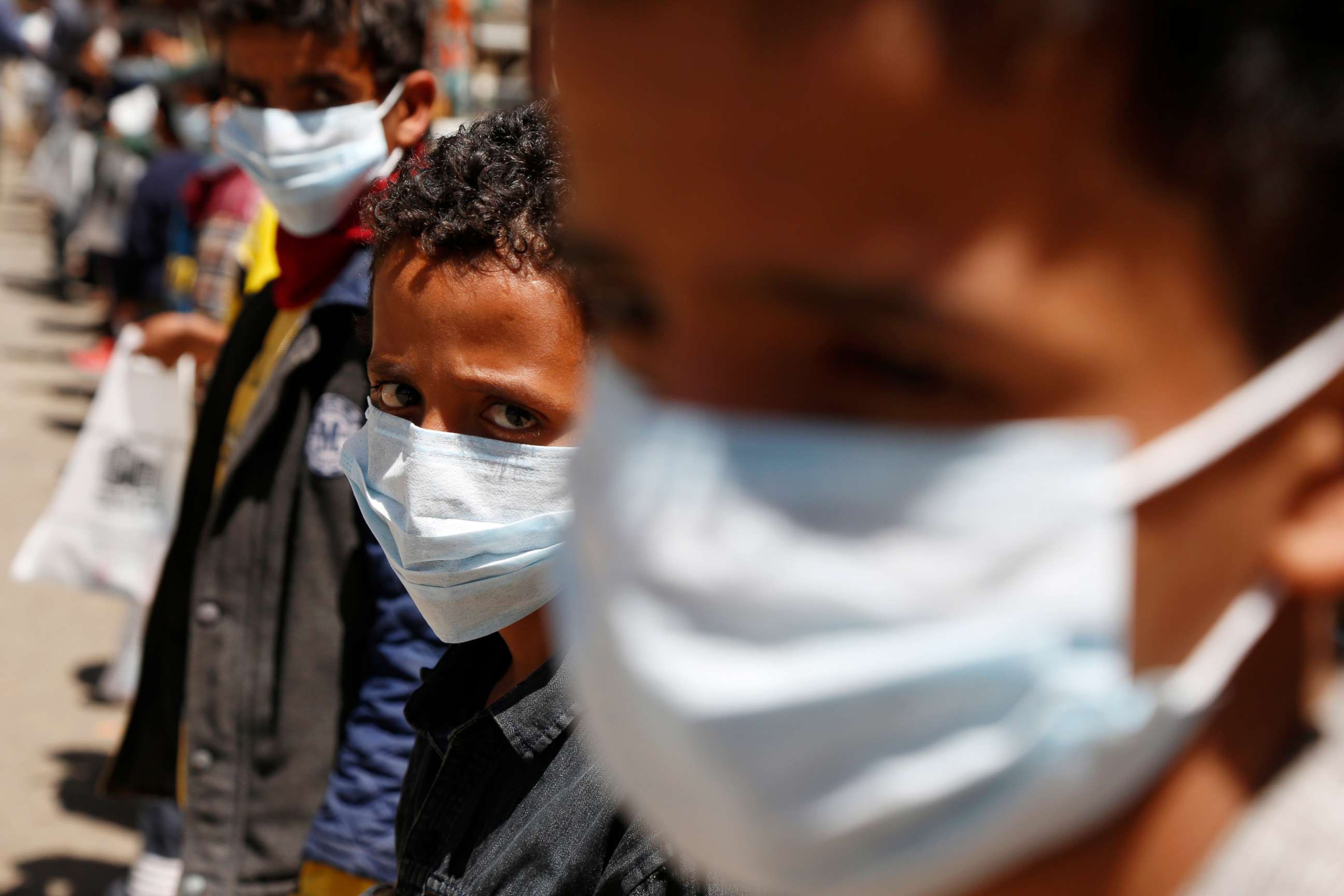
Some experts warn that the outbreaks could also be sinisterly used by authoritarian governments to advance dangerous agendas, such as instituting martial law, cracking down on civil liberties, or even committing violence against vulnerable populations.
In Myanmar, for example, the military could use the coronavirus outbreak as an opportunity to increase attacks on the Rohingya population that is already made vulnerable by its paltry health care.
"The risk of genocide persists for this community," said Naomi Kikoler, the director of the Simon-Skjodt Center for the Prevention of Genocide at the U.S. Holocaust Memorial Museum, adding that "the tools we have to mitigate that risk are no longer employable" during the COVID-19 outbreak, such as welfare visits by U.S. and other foreign diplomats, assistance distributed by aid organizations or attention from international bodies like the U.N. that is consumed by the pandemic elsewhere.
"Who's monitoring or tracking whether [COVID-19 is] in Rohingya communities? If they do get sick, will they be given treatment?" Kikoler continued. "They have been denied treatment, they have had very poor living conditions for a long time. So you have a community that is incredibly vulnerable" by both their own compromised health and a government that has not cared for them.
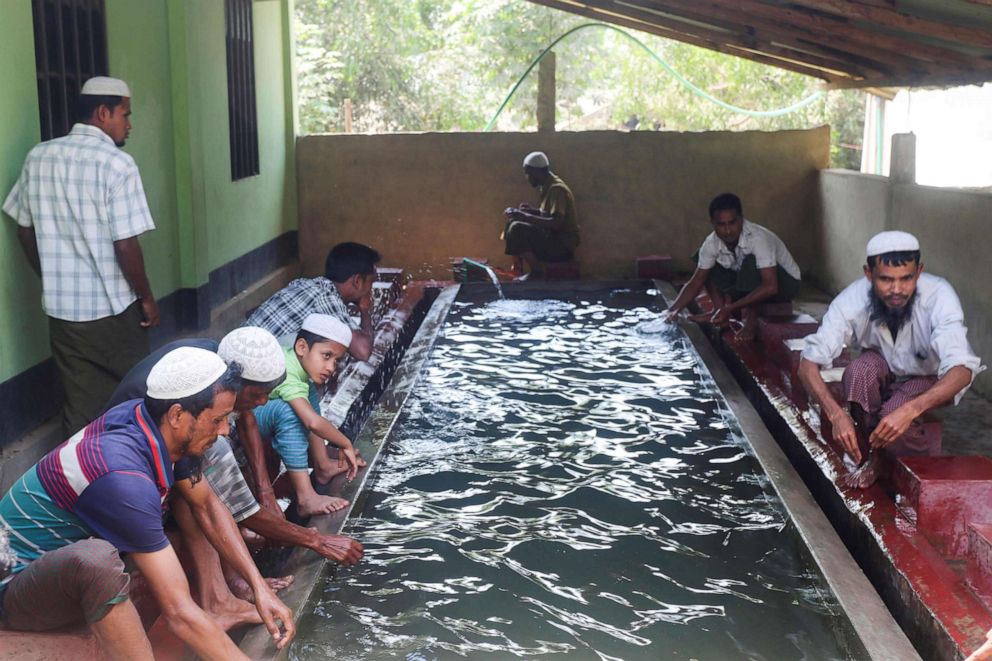
But despite the global need, the pandemic has forced the world's leading powers to care for the crisis at home, leaving the world unprepared for what could come next in these fragile communities.
"Large donors and Western governments that usually lead the charge in the international humanitarian architecture are deeply focused on their own populations, and that is completely understandable," said Lang, now vice president for programs and policy at Refugees International.
But given "the scale of what will be required" and the medical resources and professionals "already deeply in short supply," he added, "You're going to have to make really tough decisions about where limited sources are pushed and surged ... You're not going to be able to do that if you don't have very high levels of cooperation across countries."
It will also require money -- at least $2 billion, according to U.N. Secretary-General Antonio Guterres. In remarks on Wednesday, Guterres urged countries to contribute to a new U.N. fund to fight COVID-19 in the world's poorest countries and most vulnerable populations.
"The world is only as strong as our weakest health system, he said. "If we do not act decisively now, I fear the virus will establish a foothold in the most fragile countries, leaving the whole world vulnerable as it continues to circle the planet, paying no mind to borders."
To that end, the Trump administration announced an additional $174 million of international assistance, including $64 million to the U.N. High Commissioner on Refugees in order to "to assist in its pandemic response efforts for some of the world’s most vulnerable populations," Secretary of State Mike Pompeo said in a statement Thursday -- bringing the U.S. total to $274 million in emergency funds to combat the pandemic.
In addition, the first coronavirus response package passed by Congress and signed by President Donald Trump on March 6 included $1.3 billion for foreign assistance to help other countries, but that money has not yet been allocated.
Several aid organizations welcomed the new funds Thursday as an important first step, but warned about the deep division between the U.S. and China, as Chinese officials sow disinformation over the origins of COVID-19 and the U.S. criticizes China's response to the outbreak, especially its lack of transparency in the first weeks.
Pompeo in particular has consistently condemned China, accusing the Communist Party of not cooperating and using the term "Wuhan virus" to make clear where the outbreak first exploded.
What to know about coronavirus:
- How it started and how to protect yourself: coronavirus explained
- What to do if you have symptoms: coronavirus symptoms
- Tracking the spread in the US and Worldwide: coronavirus map
"It's such an uninteresting question at this stage about whether and how it originated in China, that it's baffling that we're spending any diplomatic energy or political capital talking about it," Land said. "The only way that anything gets done on this is if you see tremendous levels of cooperation across countries that are dealing with the outbreak."
He added, "The outbreak is not going to respect borders, even if you close borders."
ABC News' Mel Madarang contributed to this report.
